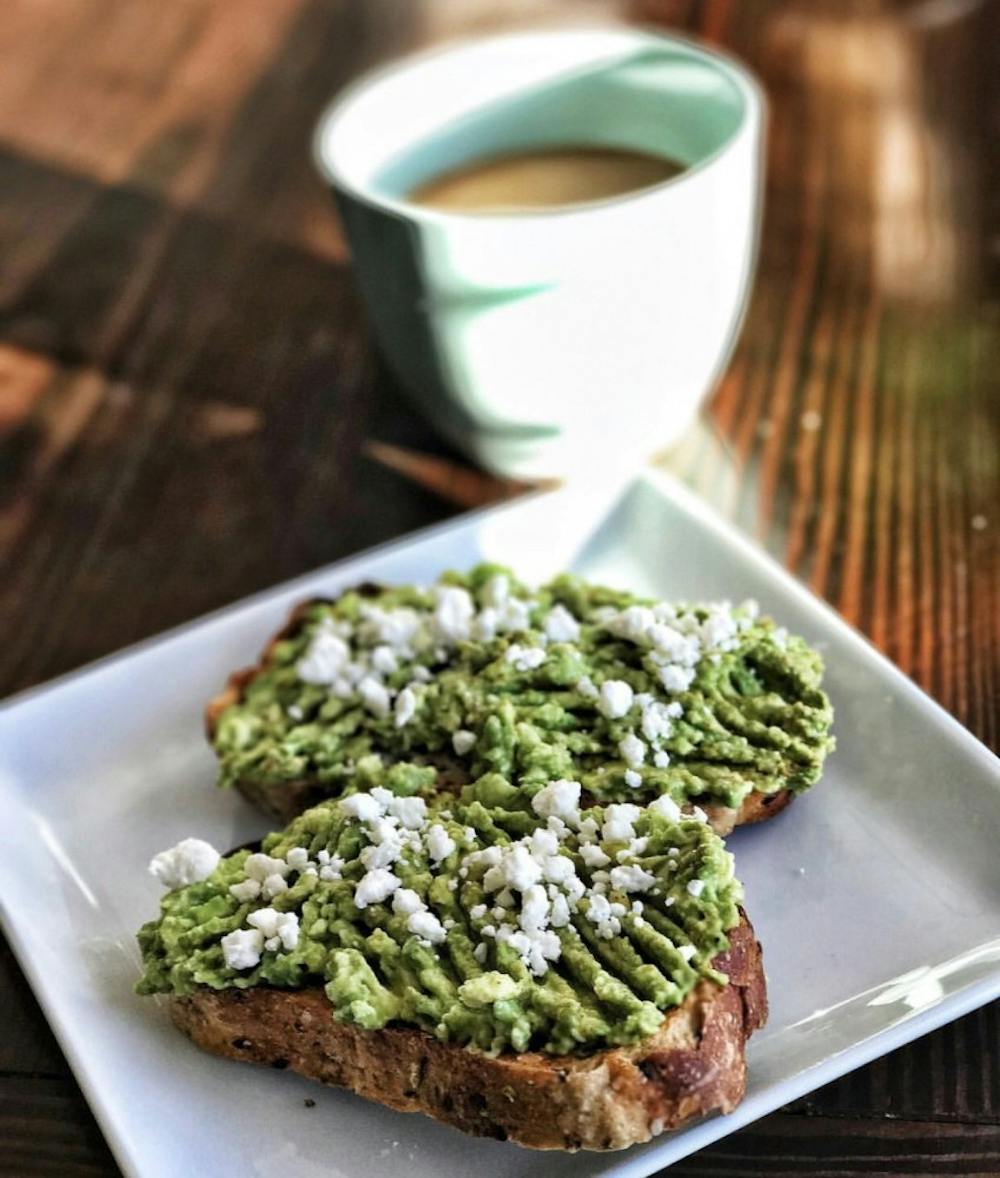When I think of food, I think of Thanksgiving, of gathering around a table heaped with a feast that will feed my family for the next three days. I think of making zucchini bread, veggie quesadillas, smoothies and avocado toast. I also think of guilt over finishing a whole box of Annie's mac and cheese, or an entire medium pizza from Domino's or a mostly full carton of ice cream in one sitting. Or even over having a brownie during a day or week that I didn't run.
Pretty much everyone I know has voiced the same worry that I fight in my own head regularly: "I can't eat that if I haven't exercised." Or, "It's okay if I eat this; I ran earlier or I'll run later." We often treat food as an enemy, because so many of the foods that are "good for us" aren't as delicious as ones that are less nutritious.

Because I haven't dealt personally with a seriously problematic relationship with food, I talked with Holly Heaton, a recent USC graduate who runs a food- and body-positive Instagram account called @messykitchgirl. She's also the social media specialist for Experience Columbia SC. She started messykitchgirl during the summer before her junior year of college as part of recovering from an eating disorder, which had begun in earnest in the later part of high school.
Much of Heaton's approach to food centers on intuitive eating, which she summarized as "getting back to the mind-body connection."
"It’s kind of hard to define into one sentence or one paragraph 'cause it looks really different for everyone else," Heaton said. "I just think it is just freeing yourself from diet culture and what you think you’re supposed to eat or not supposed to eat and just letting your body be your guide and learning what works for you."
The intuitive approach to food — eating when we're hungry and understanding which foods will make our minds and bodies feel good — tends to get socialized out of us. Heaton used babies as an example, because they cry when they're hungry and stop eating when they're full. They enjoy all sorts of foods and will eat whatever tastes good, regardless of what it is. Over the course of our lives, we ascribe value to food depending on our experiences.
In many cases, such as Heaton's, people — especially young girls — learn early on that food is intrinsically linked to your body, which is linked to your value.
“The earliest I can remember being on a diet was fourth grade," Heaton said. As a girl with a naturally larger body than many of her peers growing up, Heaton described puberty as a "traumatizing" experience of judgment and poor self-esteem.
Her eating disorder began in 11th grade, when she began abusing her Adderall prescription because it lowered her appetite. She said that she also skipped meals, experimented with laxatives and smoked cigarettes, all in the hopes of losing weight.
Several years later, Heaton says she in the best mental health of her life, but the struggle is never over; she expects to be in recovery, as she calls it, forever.
“I’m trying to learn how to put up arms against it when I go out into the world every day and try to fight to just love my body as it is right now in this moment," she said, "and learn to accept that if I never were a pound thinner, that would be okay.”

Heaton told me that one of the things that helped her the most was learning to treat intuitive eating as a form of self-love, which makes perfect sense. So often, healthy eating becomes a way of punishing ourselves for having a burger instead of a salad or a milkshake instead of no dessert at all. Instead, we should choose nutritious foods — ones that we actually like — because we deserve to be energized and healthy.
“You have to learn to make those decisions out of love for yourself," Heaton said.
Heaton also believes, and I agree, that food has more value than its calories and nutrients.
“Food is fuel, yeah, but food is more than that," she said. "And I think that whoever created the planet, or whatever created the planet, made food something that is supposed to be enjoyed and is supposed to be a thing of joy and brings people together.”
Food is supposed to be a thing of family and community, of well-being in all ways. Food is meant to be enjoyed for how it brings us together as well as how it keeps us alive.
Food is a thing of life; food is a thing of love. We have to learn to treat it as such.

